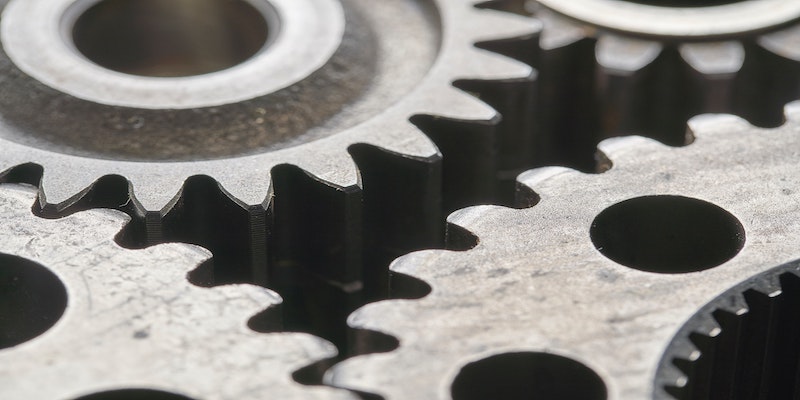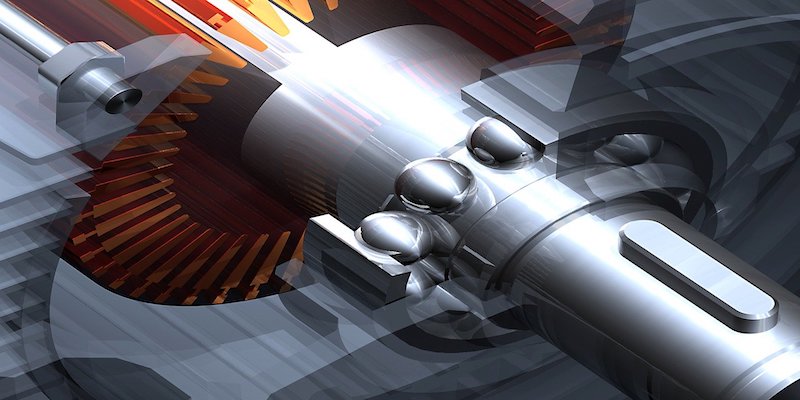Precision machining is one of the cornerstones of modern-day manufacturing. Its versatility and reputation for accuracy makes it useful for creating components for a variety of different industries.
The precision machining process contains several important steps to ensure the parts are manufactured to exact specifications and are of the highest quality.
What is Precision Machining?

Precision machining is a type of technical manufacturing that is used in the creation and designing of machines, tools, parts and components. It is defined by utilising the highest function of a program, engineering talent or equipment to reach the limits of design creation and materials science.
The process involves the use of computer controlled machinery to follow specific blueprints inputted into the system either via Computer Aided Manufacturing (CAM) or Computer Aided Design (CAD) programs. The machine will then control the various tools to ensure that the finished product matches the specifications exactly.
What is Precision Machining Used For?

Precision machining is a subtractive process that involves removing material from a raw product to create a finished part or component. The completed item will commonly require tight tolerances variations, meaning there is not much room for any errors when producing the piece.
There are many different benefits of using precision machining, including:
- Efficiency: Materials that would usually require several different stages of construction can be manufactured in a fraction of the time
- Accuracy: Components are manufactured to meet even the most stringent of specifications
- Repeatability: Engineers can easily create templates to replicate cuttings
- Cost-Effectiveness: The amount of wastage is kept to an absolute minimum, thanks to the high level of accuracy
- Safety: Operators are kept out of harm’s way since the process is largely automated
On top of this, precision machining can extend the lifespan of a component due to the fact that less damage is caused during use. The process also allows for the greater miniaturisation of parts – making more fiddly components a lot easier to manufacture.
Now that you understand the basics of precision engineering and why it’s used, the next step is to explain how the entire process works.
Quotation

The first part of the precision machining process is to obtain a quotation. The client will do this by providing the manufacturer with technical drawings or blueprints, alongside other requirements such as quantity and preferred timescale.
If the client does not have a blueprint to hand, they can instead provide the engineer with an example of the part they wish to recreate. The manufacturer will be able use reverse engineering to first of all discover how the item was made and then recreate it in bulk.
Once all the specifications have been agreed, the engineer will work out how long the project will take and the intricacies of the process, before delivering a quote. The exact amount of time it will take the manufacturer to provide their quote will vary, though an experienced precision engineering company will be able to do so extremely rapidly.
Set Up

As soon as the project has been agreed, the engineer will first of all feed the blueprint instructions into the computer to create a 2D vector or 3D solid part CAD design, which allows manufacturers to produce a rendering or model of the component’s parts. This goes alongside important technical specifications, such as geometries and dimensions to produce the product. Once the design is completed, the information is exported into a CNC-compatible file format such as IGES and STEP.
The formatted file will then be run through another computer program to generate the digital programming code needed to control the CNC machine and the tooling to produce the component. Once this has been done, the operator loads the information into the computer ready to begin.
In cases of reverse engineering, the operator will first use 3D scanning software to extract dimensional information from the part. The component will also be taken apart to assess its internal mechanisms. The data is then used to make CAD drawings to help the manufacturing process.
When everything is set up correctly, the engineer will then carry out a test run to make sure there are no errors in the coding.
Machining

Depending on the type of component that’s being manufactured, the engineer will use a variety of different precision machining techniques, such as CNC milling and CNC turning. Each process comprises several different operations – including chemical, thermal, mechanical and electrical to remove the necessary material from the raw product.
Quality Control

Specialist precision engineering companies will employ strict quality control measures right the way through the manufacturing process. This is to ensure the components conform to the exact specifications outlined in the beginning and that they are fit for purpose.
The precision machining company will first of all check the component thoroughly on completion, before it is reviewed again by a senior member of the team ahead of delivery. A specialist manufacturer will also carry out regular reviews of jobs to highlight potential quality and efficiency improvements to ensure they are delivering the best possible service.
Delivery

The final stage of the precision machining process is delivering the finished product to the client. This is usually done via a trusted and dependable third party courier. In some cases, such as projects that have a particularly tight timescale, the manufacturer may be able to deliver the product themselves.
Choose the Right Manufacturer

Now that you’re fully up to speed with how the precision machining process works, your next step is to select which manufacturer to work with. You need somebody who you can rely upon to deliver your components on time, on budget and to your exact specifications.
EGL Vaughan are experts when it comes to precision machining. We are committed to building a strong relationship with our clients from the initial quotation stage, right the way through to delivery. It is for this reason that clients come back to us time and again.
We guarantee to provide you with a rapid quote and will keep you informed of progress at every stage. With us, you can be confident that everything is being taken care of.




